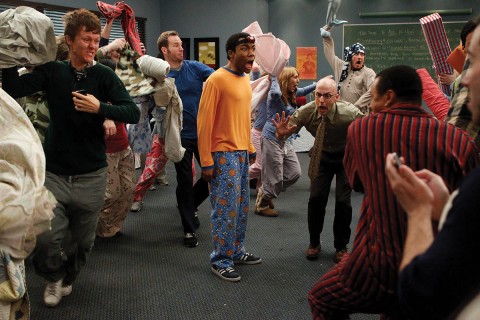My pandemic comfort viewing
Three TV shows and movies that have combated loneliness and brought welcome distraction

Isolation during this pandemic is a paradox. On the one hand, I find myself more distracted than ever. “Pandemic brain is worse than pregnancy brain,” a close friend said, as we commiserated about forgetting ordinary words or getting sidetracked by five different projects on our way to do some small task.
On the other hand, the world has slowed down. The rush of daily life has slowed to the movement of four bodies through one small apartment.
With this combination of distraction and release, I find myself rewatching movies and TV shows that bring me joy, ease my sense of loneliness, or help me feel my way to insights I need beyond the onslaught of the daily news. Here are three shows or movies that are filling my screen and calming my distracted mind.




